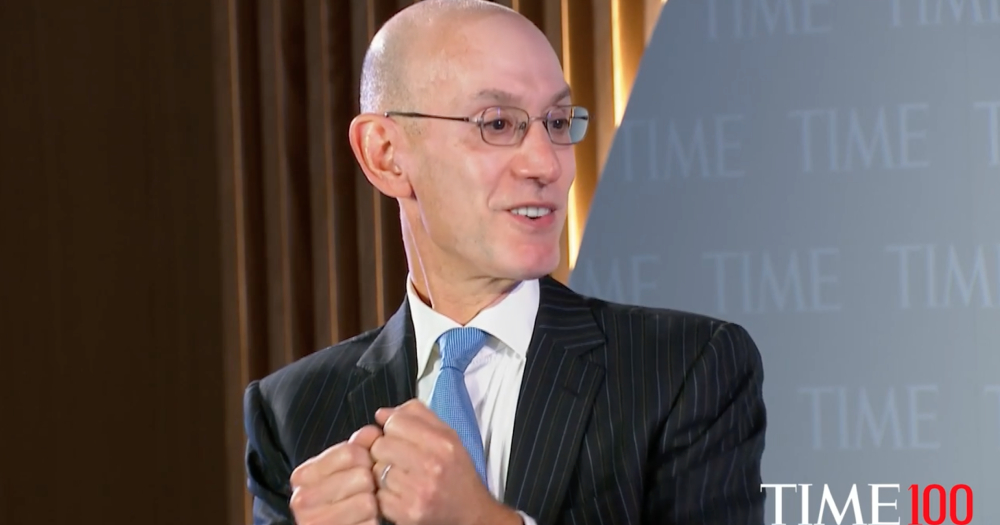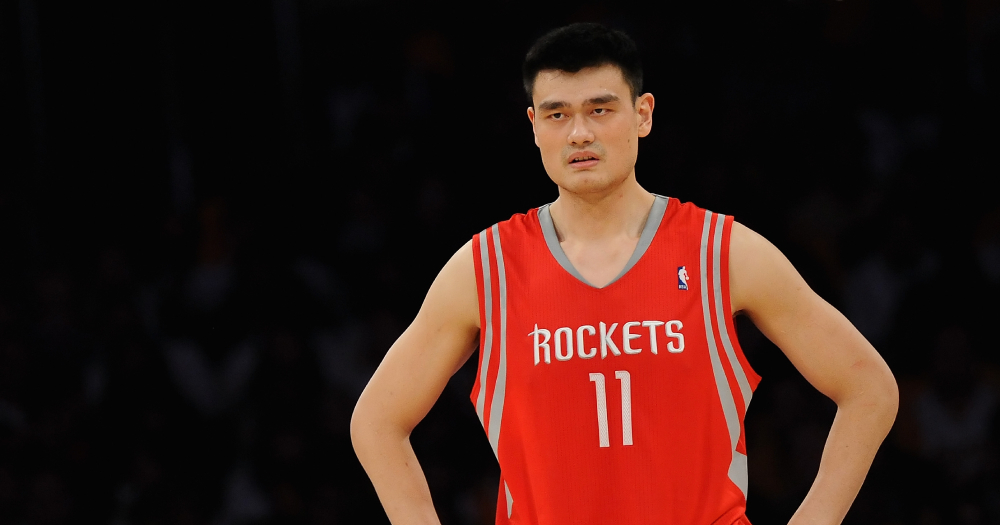In a reversal, the NBA decided to stand up to China, saying it will not do as Beijing says.
Despite the backlash it has unleashed on the professional basketball league earlier, Beijing has since quit ratcheting up the pressure to possibly avoid the episode hurting trade talks with Washington.
Will not fire Morey at Beijing's request
On Thursday, Oct. 18, NBA Commissioner Adam Silver said they will not fire the Houston Rockets' general manager Daryl Morey for his tweet supporting the anti-government protests in the Chinese Special Administrative Region (SAR) of Hong Kong.
 Screenshot via TIME
Screenshot via TIME
"We said there's no chance that's happening," Silver said.
"There's no chance we'll even discipline him."
Silver said Beijing had asked the NBA to fire Morey, but the Chinese government, on Friday, Oct. 18, denied ever making that request.
Chinese state media CCTV, in a commentary published on Saturday, Oct. 19, further said Silver had "crossed the bottom line" by continuing to defend Morey, adding that he would "face retribution" for defaming China, South China Morning Post (SCMP) reported.
Reversal
The NBA's latest statement is in stark contrast to a strongly-worded Chinese statement released in an attempt to placate Beijing, in which the basketball league condemned Morey for his "inappropriate" remarks.
However, the move has since been widely criticised as the NBA was seen to be curtailing employees' right to free speech for the sake of its commercial interests in China.
Basketball superstar LeBron James also drew ire when he appeared to back Beijing on the issue when he tweeted that Morey "wasn't educated" on the situation.
Critics deemed him as being hypocritical for he had spoken out in support for the "Black Lives Matter" movement previously.
...revenue based Wokeness I see. pic.twitter.com/Ag0Ho2avhI
— Ron 🇹🇼🇮🇪🇭🇰🇺🇸 (@BlueHorseshoe15) October 15, 2019
His comments were also met by outrage from Hong Kong protesters, who burned his jersey.
Silver's latest statement marked the NBA's strongest response to China yet since the whole furore started over a single tweet by Morey, which was swiftly deleted after it was posted.
The tweet has invited a huge backlash from China, with Chinese businesses suspending ties with the Rockets, a wildly popular team in China as it is the only NBA team Yao Ming, president of the Chinese Basketball Association, ever played for.
China exporting its censorship regime to the world?
The episode with the NBA has brought China's domestic censorship regime to the forefront.
While foreign firms with business interests in China have kowtowed to Beijing for years, apologising for offending Chinese sensitivities, the NBA's response has stood out for its refusal to give in to Beijing's censorship regime.
Not the only one
The NBA was not the only foreign entity that Beijing has taken issue with.
Previously, Ng Wai Chung, a professional player from Hong Kong was banned for six months by video game company Activision Blizzard, and disqualified from the "Hearthstone" Grandmasters tournament after he shouted a protest slogan in a livestream interview while wearing a gas mask and goggles.
When three e-sports players held up a "Free Hong Kong, boycott Blizz" sign during a match later on to show solidarity with Ng, they were also suspended for six months, CNN reported.
The perceived concessions to Beijing had sparked outrage among gamers, who called for a boycott of the game company.
Blizzard, which has partnered with Chinese firms in order to operate within China, has also released an official apology to China on its Weibo account.
https://twitter.com/grummz/status/1182363839175614464
However, it maintained that its decision has got nothing to do with China.
One country's political correctness is another's taboo
On the other hand, while the Dreamworks animated film Abominable kept well within the boundaries of Chinese political correctness by featuring a map of China with the "nine-dash line" that included the self-governed island of Taiwan, it offended other claimants in the South China Sea dispute.
Beijing uses the "nine-dash line", as it is commonly referred to, to assert its territorial claim on about 90 percent of the South China Sea.
The movie was reportedly pulled from cinemas in Vietnam and Malaysia -- two countries which have conflicting territorial claims with China in the maritime area.
Assertiveness might be backfire on Beijing
However, Beijing's assertiveness in the matter might eventually backfire.
The dispute between China and the NBA has potentially turned everyday Americans against China, and might be putting the spotlight on a political issue that ordinary sports fans would not otherwise take notice, according to Inkstone.
Also, by coercing foreign firms to submit to Chinese sensitivities, Beijing might face a hard time trying to convince the world of its plans for a "peaceful rise".
After all, enhancing one's soft power does not typically involve coercing or bullying another to do what one wants.
Pei Minxin, an expert on U.S.-China relations and China's governance, posited in SCMP that while the late paramount leader Mao Zedong took hold of the chance to draw both countries together through sports, which later became known as pingpong diplomacy, contributing to détente between China and the United States, Xi's government might have squandered this opportunity presented by sports diplomacy.
Still, he noted that the strong-arm tactics used against the NBA are more likely due to Chinese officials looking to curry favour with higher-ups in the Chinese Communist Party (CCP), and to display their loyalty to the regime.
Taking it down a notch
Realising its assertiveness might be doing more harm than good for its image, Beijing has since instructed its censorship apparatus to take it down a notch.
It has allowed an NBA match between the Los Angeles Lakers and the Brooklyn Nets to take place in Shenzhen last week as planned.
State news outlets have also been told to avoid playing up the conflict with the NBA, journalists told the New York Times.
Top online platform Tencent also began live streaming some of the preseason games in the U.S. (not that those games were that popular to begin with), which were something Beijing previously said they would ban.
The softening in stance might have been because Beijing was concerned that the issue might become overly politicised to the point of affecting trade talks with Washington that started on Oct. 10.
Nationalism is a double-edged sword
Also, the Chinese government might have wanted to keep the country's display of nationalism in check.
While the CCP lets nationalistic expressions have a free rein on the Chinese Intranet, Chinese nationalism can be a double-edged sword for the one wielding it.
If not kept under control, it can go out of hand, and even challenge the party, especially if the party is seen as not being assertive enough in its foreign policy when it comes to protecting China’s interests.
Top image by Lisa Blumenfeld/Getty Images
If you like what you read, follow us on Facebook, Instagram, Twitter and Telegram to get the latest updates.
